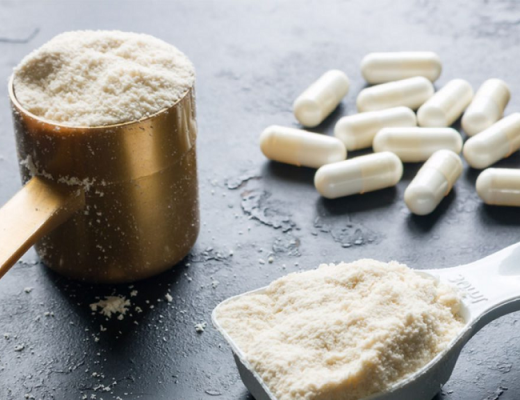The idea is seductive: take a pill and become sharper, faster, more focused. In recent years, nootropics—or “smart drugs”—have gained a cult following, praised for their potential to improve memory, enhance concentration, and sharpen cognition. From Silicon Valley techies to overstretched students, many are turning to nootropics in search of a cognitive edge. But do these substances really work? Or are we chasing mental miracles that don’t deliver?
Here we look at what science says about nootropics: which ones show real promise, where the placebo effect plays a role, and what the risks and limitations are when it comes to boosting brain power.
What Are Nootropics?
The term “nootropic” was coined in the 1970s by Romanian psychologist Dr. Corneliu Giurgea to describe substances that enhance learning and memory while protecting the brain. Today, nootropics broadly refer to any compound—natural or synthetic—that claims to support cognitive function.
These can include:
- Prescription stimulants (e.g., Adderall, Modafinil)
- Over-the-counter natural supplements (e.g., Bacopa, Lion’s Mane)
- Common compounds like caffeine and L-theanine
- Synthetic smart drugs like racetams
Some are clinically approved for specific medical conditions like ADHD or narcolepsy. Others are used off-label or as daily supplements for healthy individuals. But effectiveness varies—and not all nootropics are created equal.
What the Research Actually Says
Scientific interest in nootropics has grown significantly, but studies show mixed results. While some compounds have credible evidence for improving aspects of brain function, others show effects that are mild—or indistinguishable from placebo.
1. Prescription Nootropics: Effective, but Controversial
Drugs like Adderall and Modafinil are often used off-label by healthy individuals to enhance performance. Modafinil, originally developed to treat narcolepsy, is one of the most researched nootropics in healthy people.
What studies show:
- Improved alertness and reaction time
- Better task-related focus under fatigue
- Mixed results for memory and creativity
The catch: These drugs carry side effects—like insomnia, anxiety, and dependence—and ethical concerns about fairness and safety.
2. Caffeine + L-Theanine: The Classic Combo That Works
Caffeine, often considered the most widely used nootropic, is well-documented to enhance short-term alertness and attention. When paired with L-theanine (an amino acid from green tea), users report smoother focus without the jitters.
What studies show: Improved task-switching, reaction speed, and sustained attention—especially under mental fatigue.
This combination is one of the most consistently backed by peer-reviewed research for day-to-day productivity.
3. Bacopa Monnieri: Memory Support with Patience
Bacopa is an herb from Ayurvedic medicine that shows promise in improving memory—especially long-term retention.
- Effects take time: often 4–6 weeks of daily use
- Studies suggest improved memory recall and reduced anxiety in healthy adults
Bacopa isn’t a fast-acting stimulant—it’s a long-term investment in cognitive health.
4. Modest but Real Benefits from Lion’s Mane and Rhodiola
These natural adaptogens are gaining popularity for supporting mental clarity and stress resilience.
Lion’s Mane: Promotes nerve growth factor (NGF) and may enhance memory and cognition over time.
Rhodiola: Reduces fatigue and supports cognitive performance under stress.
While not dramatic, both show low risk and steady gains when taken consistently.
The Power (and Pitfall) of the Placebo Effect
Here’s something most people underestimate: the brain’s own expectation of improvement can change how it functions. In nootropic research, placebo-controlled trials are crucial—and often show surprising results.
When Belief Becomes Performance
Some studies show that people who think they’ve taken a brain booster actually perform better, even if they took a placebo. This effect is strongest with supplements that are hyped for improving alertness or focus.
- Expecting to feel focused can enhance attention temporarily
- Belief-driven performance tends to fade faster than pharmacological results
That doesn’t mean the placebo effect isn’t real—it just means we should be cautious about attributing success solely to a supplement.
Why Nootropics Work for Some (and Not Others)
The effectiveness of any nootropic depends on several individual factors:
- Baseline brain function: People with sleep deprivation or cognitive fatigue may notice greater effects than well-rested individuals
- Genetic differences: Enzymes that metabolize substances like caffeine vary from person to person
- Lifestyle factors: Diet, sleep, hydration, and stress levels impact brain chemistry and responsiveness
What works for your coworker might do little for you—and vice versa. This is why personal experimentation, done responsibly, matters more than blanket claims.
The Downsides: Risks, Tolerance, and Dependency
Not all nootropics are harmless. Especially when taken long-term or in high doses, certain compounds can lead to side effects or diminished returns.
Common Pitfalls
- Overstimulation: Jitteriness, insomnia, and anxiety—especially from stimulant-based products
- Dependency: Relying on nootropics to function can lead to psychological dependence
- Unknown interactions: Many supplements haven’t been studied together, and stacking (combining) multiple products can increase risks
Natural doesn’t always mean safe. Always read labels, research ingredients, and consult with a healthcare provider—especially if you’re on medication or have underlying health conditions.
Tips for Smarter Supplementation
If you’re interested in trying nootropics, here’s how to do it safely and effectively:
- Start small: Introduce one supplement at a time so you can track its effects
- Use a journal: Record mental clarity, mood, focus, and energy levels daily
- Cycle usage: Avoid daily reliance by taking breaks or rotating supplements
- Optimize your lifestyle first: No supplement can outsmart poor sleep, diet, or chronic stress
Think of nootropics as supportive tools—not miracle pills.
What the Experts Say
Neuroscientists and bioethicists tend to agree on a few key points:
- Some nootropics offer real, measurable benefits—especially in sleep-deprived or stressed populations
- The placebo effect is powerful, particularly in healthy individuals
- More research is needed on long-term safety and combined use of supplements
Experts emphasize that cognitive enhancement is complex, and results depend on context. What looks like a breakthrough in one person may be negligible in another.
Navigating the Smart Pill Landscape
Nootropics are neither miracle cures nor snake oil. Some substances—like caffeine, L-theanine, bacopa, and modafinil—have real evidence supporting their use. Others may owe their popularity more to hype than hard data.
At their best, nootropics can enhance clarity, endurance, and mood when used wisely. At their worst, they can distract from the core pillars of brain health: sleep, movement, nutrition, stress management, and mental engagement.
So—smart pills or placebo? The answer lies somewhere in between. The most powerful brain hack is understanding your own mind—and making choices that support it from the ground up.



